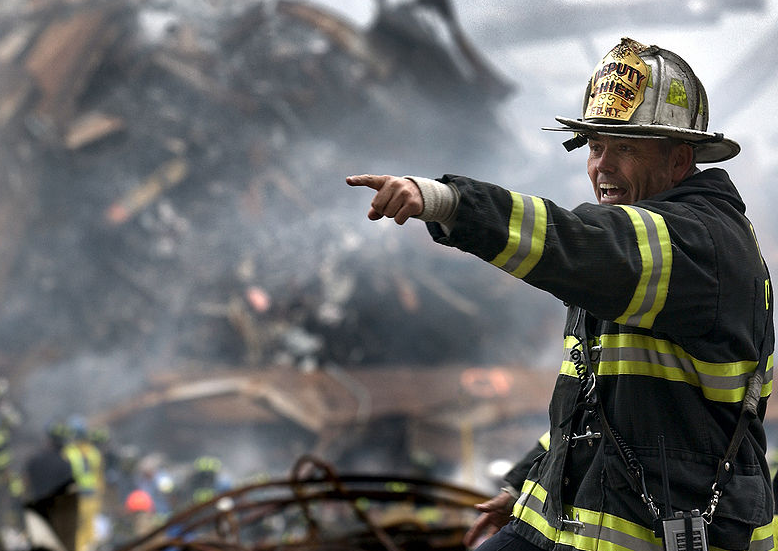 Parler
Parler Gab
Gab
- Lithium-ion batteries pose a significant and growing safety risk.
- A recent airline fire was caused by a portable power bank.
- Airlines are implementing new restrictions on power banks in response.
- These battery fires are difficult to extinguish and are increasing nationwide.
- Global safety regulations are struggling to keep pace with the risk.
A pervasive problem
These rechargeable batteries are now embedded in daily life. "Most people have at least seven to ten lithium battery-type products in their homes," said Sammy Sanchez, Fire Marshal for the South Walton Fire District in Florida. "Everything from watches to scooters to e-bikes, you name it, everything is lithium." The U.S. Federal Aviation Administration (FAA) has tracked the airborne risk, reporting 89 incidents in 2024 where lithium batteries emitted smoke, fire, or extreme heat on board planes. Through the end of August 2025, there have been a further 61 incidents. In response to the Air Busan fire, a wave of airlines introduced new restrictions. Emirates, Singapore Airlines, EVA Air, and others have banned the use of power banks during flight or ordered them not to be stored in overhead compartments. Matt Humby, a senior technical consultant at fire extinguisher manufacturer Firechief Global, believes the industry is playing catch-up. "The Air Busan incident shows how quickly things can escalate. Without stricter controls and better passenger education, an in-flight fire remains a real risk," Humby said. "It’s taken an aircraft fire to make them really sit up and see what the situation is."Fires on the ground
The danger is not confined to aviation. Nationwide, the United States saw more than 2,500 battery incidents in 2024. Fire departments are responding at an alarming rate. "Of the fires we have investigated this year, 28% have been battery-related. It’s a real issue, and we are seeing an increase," said St. Pete Fire Rescue Division Chief Ian Womack in October 2025. These fires are notoriously difficult to extinguish. "When you try to put the fire out, it reacts, and then we have to put another fire out," explained Mitch Conway, a fire inspector with the Lebanon Fire Department in Ohio. The chemical makeup of some lithium batteries makes them resistant to traditional firefighting methods like water, requiring crews to isolate the batteries to cut off their oxygen supply.A regulatory challenge
The international response has been evolving for years. In 2016, the International Civil Aviation Organization (ICAO), a U.N. agency, banned lithium batteries from checked baggage on airlines. The prohibition was meant to be in effect until a new fire-resistant packaging standard could be designed, but a fully validated, globally adopted solution has yet to materialize. Humby points to the core of the challenge. "While awareness is growing, regulatory action still lags behind the pace of incidents we’ve had with lithium-ion battery fires," he observed. The path forward relies heavily on public awareness and proper handling. Fire officials consistently warn against using after-market chargers, overcharging devices, and charging batteries unattended, especially overnight. "Charge them in the charger it comes with, don’t overcharge them, charge them on hard surfaces, and most importantly, don’t leave them overnight or leave them unattended," Sanchez advised. Proper disposal is also critical as improperly discarded batteries can spark fires in garbage trucks and landfills. As global demand for lithium-ion batteries continues its expected significant rise, the race is on to manage the inherent risks that come with the convenience they provide. The evidence is clear that without a concerted and proactive effort from regulators, manufacturers, and the public, the devices we rely on could pose a continued threat to our safety at home, at work, and in the skies. Sources for this article include: TheEpochTimes.com BBC.co.uk WJHG.com Fox13News.com Fox19.comAI robots to reshape human social dynamics, threatening traditional relationships
By Finn Heartley // Share
Montana State Prison water supply contains multiple toxins, prompting broader systemic concerns
By Finn Heartley // Share
China’s economic slowdown deepens amid renewed U.S. trade war threats
By Willow Tohi // Share
Trump REJECTS Zelensky’s request for Tomahawk missiles
By Ramon Tomey // Share
U.S. and China trade cyberattack allegations as tensions escalate
By Belle Carter // Share
Escalating tensions raise fears of Iran-Israel conflict
By Belle Carter // Share
Governments continue to obscure COVID-19 vaccine data amid rising concerns over excess deaths
By patricklewis // Share
Tech giant Microsoft backs EXTINCTION with its support of carbon capture programs
By ramontomeydw // Share
Germany to resume arms exports to Israel despite repeated ceasefire violations
By isabelle // Share










